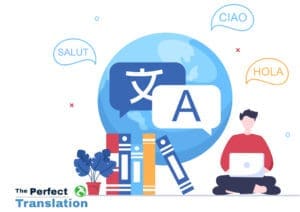 Certified translations are essential for immigration, business, and legal purposes, yet there’s a lot of misinformation surrounding what they are and how they work. Whether you need a certified translation for a visa application, legal documents, or a business contract, it’s important to separate fact from fiction. Let’s debunk some of the most common certified translation myths.
Certified translations are essential for immigration, business, and legal purposes, yet there’s a lot of misinformation surrounding what they are and how they work. Whether you need a certified translation for a visa application, legal documents, or a business contract, it’s important to separate fact from fiction. Let’s debunk some of the most common certified translation myths.
The Truth Behind Common Certified Translation Myths
Myth #1: Any Bilingual Person Can Provide a Certified Translation
Fact: Certified translations must be completed by professional translators.
While bilingual individuals may have strong language skills, they’re not automatically qualified to provide a certified translation. Certified translations must be completed by professional translators who have been trained in accuracy, industry terminology, and formatting.
In addition to translating the document, the translator must include a signed certification statement declaring the translation is complete and accurate to the best of their ability. Many institutions, such as USCIS, courts, and universities, often require translators to be affiliated with professional organizations like the American Translators Association (ATA) or similar governing bodies in other countries.
Myth #2: A Notary Public Must Certify Every Translation
Fact: Notarization and certification are different processes.
A certified translation includes a statement of accuracy signed by the translator or translation agency. A notarized translation, on the other hand, is an extra step in which a notary public verifies the translator’s identity – not the quality or accuracy of the translation itself.
Some institutions require notarized translations in addition to certification, but it’s not a universal requirement. Before requesting a notarized translation, verify whether you actually need one.
Myth #3: Machine Translations Can Be Certified
Fact: Certified translations must be done by humans.
While Google Translate or DeepL can be helpful for basic understanding, they’re not acceptable for certified translations. Machine-generated translations often lack accuracy, fail to capture cultural nuances, and can produce misleading results.
Most institutions explicitly prohibit machine-translated documents, even if they’re later reviewed by a human. A certified translation must be completed by a professional translator who understands legal and technical terminology and can ensure the final document meets official standards.
Myth #4: All Certified Translations Look the Same
Fact: Different institutions may require different formats.
While all certified translations include a certification statement, the format of the translated document varies depending on the requesting organization’s requirements. Some require a side-by-side translation, while others may need the translation on official letterhead. Some may even need additional details, such as the translator’s credentials or membership in a professional association.
Before submitting a translation, check the institution’s specific formatting requirements to avoid rejection.
Myth #5: Certified Translations Are Only Needed for Immigration
Fact: Certified translations are required for various legal and official purposes.
While certified translations are essential for immigration applications, they’re also required for various legal and official purposes. These include academic transcripts for international students, medical records for treatment overseas, contracts for international business, court documents for legal proceedings, and adoption paperwork for international adoptions.
Certified translations ensure documents are legally recognized across different countries and language barriers.
Myth #6: A Certified Translation is Valid Forever
Fact: Some institutions have time limits on translations.
While a certified translation does not technically “expire,” some institutions have time limits on how old it can be. These typically range from the last six months to a year and are especially common for financial and legal documents where information may change over time.
If you need a certified translation, check the requesting organization’s policies to ensure your documents are still valid for submission.
Myth #7: Certified Translations Are Expensive and Take Weeks to Complete
Fact: Many certified translations are affordable and available quickly.
While costs vary based on factors such as document length, language pair, and complexity, certified translations are often more affordable than people assume. Many agencies offer competitive pricing and fast turnaround times, including 24-hour or same-day delivery for urgent requests.
Planning ahead can help you avoid rush fees, but even last-minute requests are often manageable.
Myth #8: Only Government Agencies Require Certified Translations
Fact: Many private and public institutions require certified translations.
While government agencies like USCIS, embassies, and courts require certified translations, many private companies and universities also need them. If you’re applying to study abroad, transferring your job overseas, or dealing with an international real estate transaction, you may need to provide certified translations of essential documents.
Myth #9: You Can Translate Your Own Documents for Certification
Fact: Self-translations are not accepted for official use.
Even if you’re fluent in the source and target languages, you cannot certify your own translation for legal or immigration purposes. Most institutions require an independent, qualified translator to ensure objectivity and accuracy.
If you need a certified translation, it’s best to hire a professional to avoid issues with document acceptance.
The Perfect Translation Has All The Facts
Certified translations are essential for ensuring that documents are accurately understood and accepted by legal, academic, and governmental institutions. Understanding the truth behind common certified translation myths can help you navigate the process more confidently and avoid unnecessary costs or delays.
When you need a certified translation, The Perfect Translation is the reputable translation agency you’re looking for. Our team of professionals are all pedigreed linguists holding a variety of degrees and certificates. We have the experience and expertise to provide certified translations for whatever type of document you need, and we even offer expedited turnaround, hard copy printing, and shipping services so you can meet your deadlines. Contact us today for a free quote.

Leave a Reply